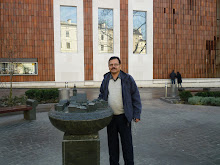PLANT RUBBER AND ELIMINATE EXTREMISM
I still remember my first visit to Agartala (Tripura). It was in 1992 April. Me at 33 and my kids at 7 and 5 years. In fact this was my first journey to North India. I was nervous and very difficult to make me convince that I have to leave my family. Being my first long distance journey – first part by train and last part by air – I was little bit confused on my preparations, but managed to complete my journey smoothly.
Tripura can be named as a tribal state. There was no comparison in culture, roads, public transport system, food habits, communication system etc. with that of my state. I travelled throughout the state, met people in their village, and ate with them. Of course, I had interpreter’s help in communication. Agartala – capital town of Tripura was a small town. I have not seen any high- rises and or any architectural beauty in this town. Villages had small local markets, which were active in evening. You could get local vegetables and pig meat openly exhibited for sale.
My assignment was to involve in development and extension activities in natural rubber cultivation in the state, concentrating on the overall welfare of tribal community. The job was interesting and of great satisfaction. There was security threat (extremism) prevailing in the state, varying from place to place. Some days, I have gone for field visits under heavy police protection. There was incidence of casualties within our organization due to extremism from tribal belt during this period.
Hevea Braziliencis – is a deciduous tree giving natural rubber milk called latex. Rubber is a critical commodity as it is used in many areas like automobile, medical, life saving equipments, sports and various other industries.
Instead of going with ‘jumming’ (cultivating and then destroying land and moving on) type of cultivation, tribals were given opportunity to grow rubber, a perennial crop which will give them consistent income from their land. Our organization co-ordinate with the various departments of the state government and tried to ensure social upliftment of the community along with financial stability of their families. The project commenced from 1992. We identified huge plots and engaged tribals to work on their land, without giving any idea about their individual territory. We paid them wages, arranged medical camps to take care of their health, undertook ancillary income generating activities (fishery, piggery) on sight and concentrated on women development programmes, which ensured income to family and women empowerment.
Now I have gone again to Agartala (Tripura) last month after 17 years, as a part of a different mission of setting a latex centrifuging factory. I visited some of the villages, where the project was successfully implemented. Those young plantations are now mature and generating substantial income to those tribals families.
I was surprised to see the change in these villages. People have greater confidence, good cloths, mobile phone, Television at home, bike or what else! They know about the industry, happenings in international market. And finally they have expectations of future, concern on education of children and health of family. They do not have time to spare on extremism. Villages are calm and I could observe brightness in the eyes of the people. Yes, they are too busy with their present and confident of their future.
I am so proud to hear from them, their gratitude to Dr.A.K.Krishnakumar and his team in Rubber Board, who were the mastermind of this success story.
------------------------
